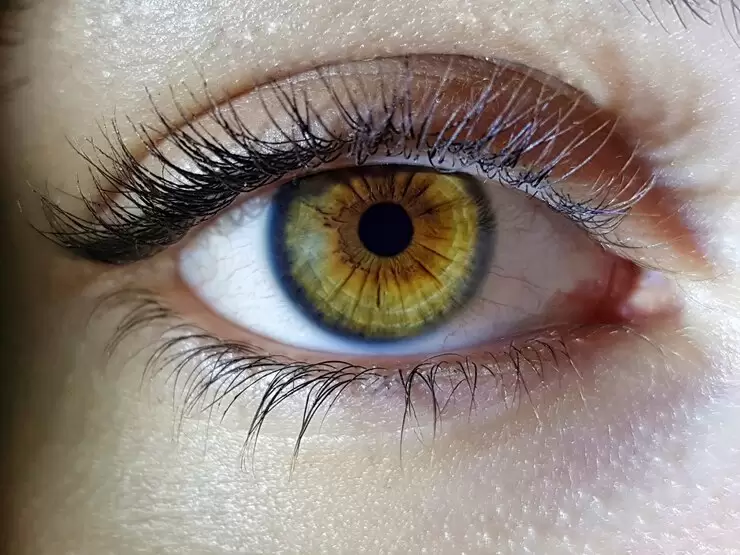
Eye color is not just an aesthetic feature; it also plays a significant role in vision health and sensitivity to light. The color of our eyes is primarily determined by the amount of melanin in the iris. Eyes with more melanin (like brown eyes) provide better protection against light and ultraviolet (UV) radiation. On the other hand, eyes with less melanin (such as blue or green eyes) are more sensitive. These differences create specific advantages and vulnerabilities for each eye color regarding vision health.
Blue eyes contain less melanin, making them more sensitive to light. As a result, individuals with blue eyes often need to take extra precautions to protect their eyes, especially in sunny conditions. Melanin helps absorb light and shields the internal structures of the eye, which is why blue-eyed individuals may experience more discomfort in bright environments. Wearing sunglasses is a key way to reduce sensitivity and protect their eyes. Additionally, blue-eyed individuals may be at a higher risk for conditions such as cataracts and macular degeneration.
Brown eyes have a higher melanin content, providing better protection against light and UV radiation. This makes people with brown eyes more resilient to the harmful effects of sunlight. The reduced penetration of UV light into brown eyes can also lower the risk of age-related eye conditions to some extent. However, this doesn’t mean brown eyes are completely free of risks. Regular eye check-ups remain essential to monitor vision health and prevent potential problems.
Green eyes are one of the rarest eye colors and have a moderate level of melanin. This means individuals with green eyes have some sensitivity to sunlight and should also take protective measures on sunny days. Green-eyed people generally have less sensitivity compared to blue eyes but more compared to brown eyes. Like other lighter eye colors, green eyes are also at some risk of age-related conditions such as cataracts or macular degeneration.
For many, eye color is seen as merely an aesthetic trait, but it has notable implications for vision health. Blue, green, and brown eyes differ in their sensitivity to light, and each has its own advantages and risks. People with blue eyes are more sensitive to light and need extra protection in bright conditions. Brown eyes offer natural protection but still require regular eye exams to maintain optimal health.
Regardless of your eye color, it’s important to prioritize your vision health. Regular eye exams and protective measures like wearing sunglasses can help shield your eyes from UV radiation and maintain their health.
Your eye color can influence your vision and overall eye health, but with proper care and preventive measures, every eye color can stay healthy for years. Always protect your eyes in sunlight and make regular eye check-ups a priority to keep your vision in top condition. No matter your eye color, each shade has its own beauty and unique traits that make it special.
2024-07-17
2024-02-14
2024-02-14
2024-06-12
2024-06-13
2024-06-13
2024-06-13
2024-06-14
2024-06-14
2024-06-14
2024-06-14
2024-06-14
2024-06-14
2024-06-14
2024-07-31
2024-07-31
2024-07-31
2024-07-31
2024-08-09
2024-08-12
2024-08-28
2024-09-05
2024-09-06
2024-09-14
2024-09-19
2024-09-19
2024-10-01
2024-10-02
2024-10-07
2024-10-21
2024-10-23
2024-10-29
2024-11-12
2024-11-21
2024-11-26
2024-11-28
2024-12-03
2024-12-06
2024-12-10